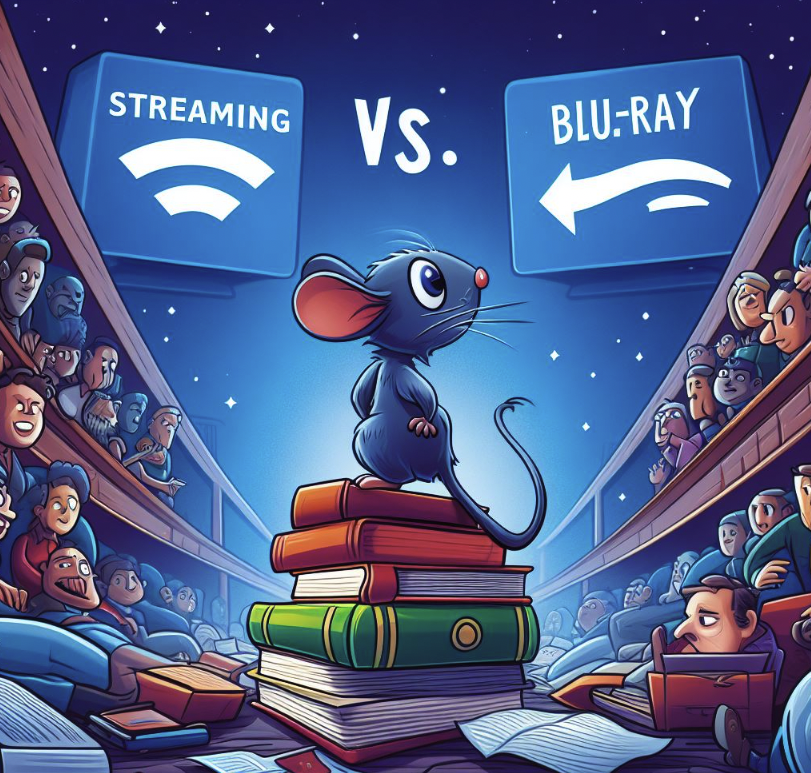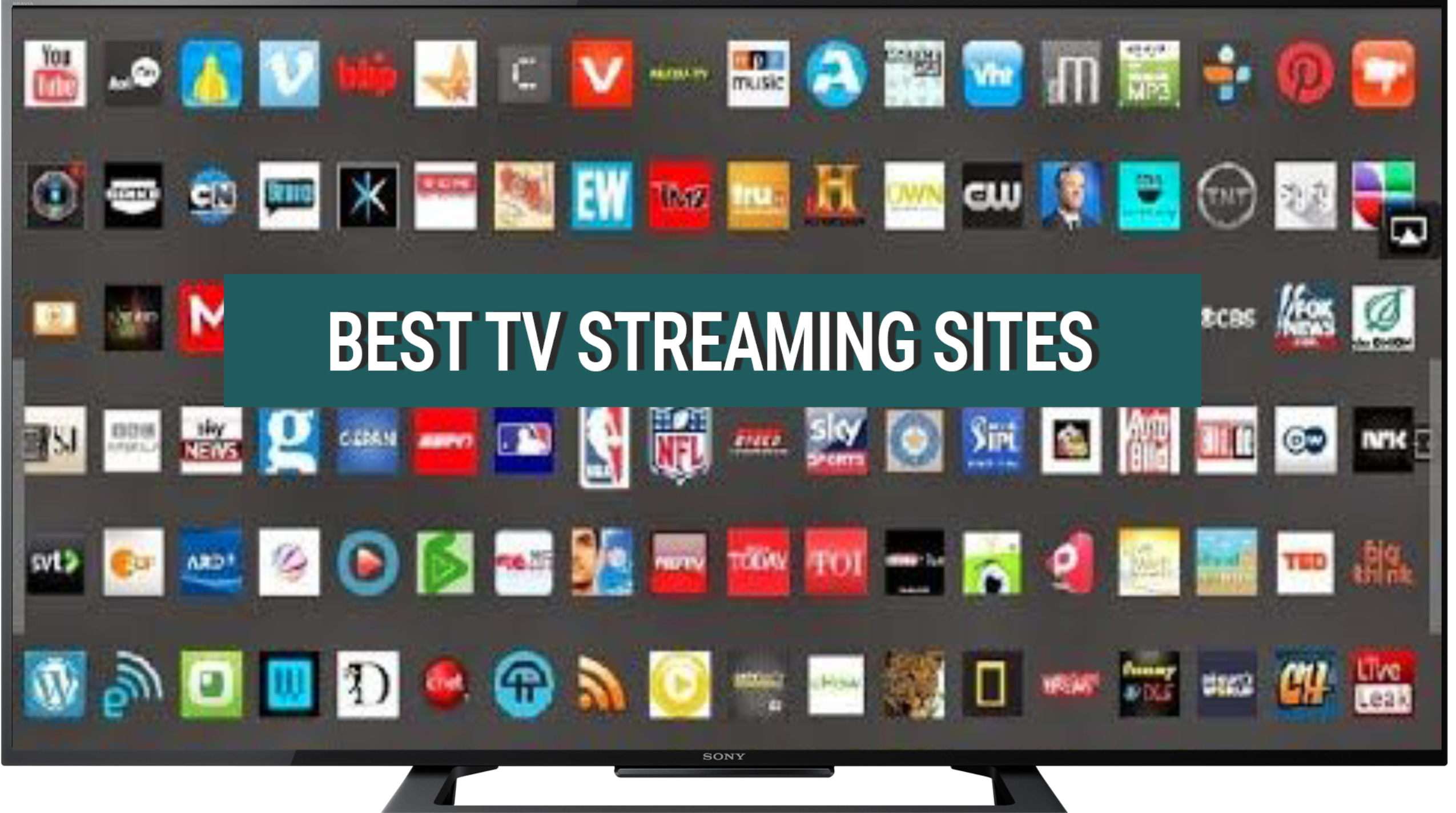In today’s digital age, the way we consume movies has drastically changed.
With the rise of streaming services like Netflix, Amazon Prime Video, and Disney+, many people are questioning the relevance of physical media, such as Blu-ray discs.
While streaming offers convenience and accessibility, Blu-ray is often associated with superior movie quality.
Streaming vs. Blu-ray
Streaming
Pros:
- Convenience: Instant access to a vast array of content.
- Portability: Watch on various devices, from TVs to smartphones.
- Cost: Often cheaper than buying physical media.
Cons:
- Quality: Can be subject to compression, affecting image and sound quality.
- Internet Dependence: Requires a stable and fast internet connection.
Blu-ray
Pros:
- Quality: Offers superior audio and video quality without compression.
- Ownership: Physical ownership of content, independent of internet access.
- Special Features: Often includes bonus content and special features.
Cons:
- Cost: Typically more expensive than streaming services.
- Convenience: Requires physical storage and handling of discs.
Choose streaming for convenience, portability, and cost-efficiency, and Blu-ray for the highest quality, special features, and offline access to content.
Below we look deeper into the debate of streaming vs. Blu-ray and explore which option truly offers better movie quality.
Table of Contents
1. Understanding Streaming Quality
Streaming services have become immensely popular due to their convenience and vast libraries of movies and TV shows.
However, the quality of the content can vary depending on several factors:
- Internet Connection: The speed and stability of your internet connection play a crucial role in streaming quality. A slow or unreliable connection can result in buffering, pixelation, and reduced video quality.
- Compression: To ensure smooth streaming, video files are often compressed, which can lead to a loss of detail and overall picture quality.
- Resolution: Most streaming services offer content in various resolutions, including standard definition (SD), high definition (HD), and 4K Ultra HD. Higher resolutions generally provide better image quality.
- Bitrate: Bitrate refers to the amount of data transmitted per second. Higher bitrates result in better image quality, but they also require faster internet speeds.
2. Advantages of Streaming
Streaming services have revolutionized the way we watch movies and TV shows. Here are some advantages of streaming:
- Convenience: With streaming, you can access a vast library of movies and TV shows instantly from the comfort of your own home. There’s no need to visit a physical store or wait for discs to arrive in the mail.
- Portability: Streaming allows you to watch movies on various devices, including smartphones, tablets, smart TVs, and gaming consoles. You can enjoy your favorite content wherever you go.
- Cost: Streaming services often offer affordable monthly subscriptions, providing access to a wide range of movies and TV shows at a fraction of the cost of purchasing individual Blu-ray discs.
- Updates and New Releases: Streaming services frequently update their libraries with new releases and exclusive content, ensuring a constant stream of fresh entertainment.
3. Blu-ray: The Gold Standard of Movie Quality
Blu-ray discs have long been regarded as the gold standard for movie quality. Here’s why:
- Uncompressed Audio and Video: Unlike streaming, Blu-ray discs offer uncompressed audio and video, providing the highest possible quality. This means you can experience movies with superior sound and picture clarity.
- High Bitrate: Blu-ray discs have significantly higher bitrates compared to streaming services. This allows for more data to be stored, resulting in better image quality, richer colors, and finer details.
- Lossless Audio: Blu-ray discs support lossless audio formats like Dolby TrueHD and DTS-HD Master Audio, which provide a more immersive and dynamic sound experience compared to the compressed audio found in streaming.
- Special Features: Blu-ray discs often come with bonus features like behind-the-scenes documentaries, director’s commentaries, and deleted scenes, enhancing the overall movie-watching experience.
4. Case Studies and Statistics
Let’s take a look at some case studies and statistics that shed light on the streaming vs. Blu-ray debate:
Case Study 1: Picture Quality
A study conducted by Consumer Reports compared the picture quality of streaming services and Blu-ray discs.
The study found that Blu-ray discs consistently outperformed streaming services in terms of image clarity, color accuracy, and overall visual experience.
Case Study 2: Audio Quality
In a study conducted by Audioholics, Blu-ray discs were found to provide superior audio quality compared to streaming services.
The lossless audio formats supported by Blu-ray discs delivered a more immersive and realistic sound experience.
Statistics: Streaming vs. Blu-ray Sales
According to the Digital Entertainment Group, Blu-ray disc sales have been declining in recent years, while streaming services continue to gain popularity.
However, this does not necessarily indicate a decline in demand for high-quality movie experiences, as streaming services often offer their content in high-definition and 4K Ultra HD resolutions.
FAQs – Streaming vs. Blu-ray: Which Offers Better Movie Quality?
1. Is streaming better than Blu-ray?
Streaming offers convenience and a vast library of content, but Blu-ray discs provide superior movie quality with uncompressed audio and video, higher bitrates, and lossless audio.
2. Does streaming have better picture quality than Blu-ray?
No, Blu-ray discs consistently outperform streaming services in terms of image clarity, color accuracy, and overall visual experience.
3. Does streaming have better audio quality than Blu-ray?
No, Blu-ray discs offer superior audio quality with lossless audio formats like Dolby TrueHD and DTS-HD Master Audio, providing a more immersive and dynamic sound experience.
4. Can streaming services provide 4K Ultra HD quality?
Yes, many streaming services offer content in 4K Ultra HD resolution, providing high-quality visuals.
However, the actual quality may be affected by internet connection speeds and compression.
5. Are Blu-ray discs more expensive than streaming services?
Blu-ray discs can be more expensive upfront, as they require purchasing physical media.
However, streaming services often require monthly subscriptions, which can add up over time.
6. Can I watch Blu-ray movies on streaming platforms?
No, Blu-ray movies cannot be directly streamed on platforms like Netflix or Amazon Prime Video. They require a Blu-ray player or a compatible device to play the physical disc.
7. Can I watch streaming content on a Blu-ray player?
Most modern Blu-ray players have built-in streaming capabilities, allowing you to access popular streaming services directly from the device.
8. Does streaming quality depend on my internet connection?
Yes, the quality of streaming content can be affected by the speed and stability of your internet connection.
A slow or unreliable connection can result in buffering, pixelation, and reduced video quality.
9. Can I get bonus features with streaming services?
Streaming services generally do not offer the same level of bonus features found on Blu-ray discs, such as behind-the-scenes documentaries, director’s commentaries, and deleted scenes.
10. Can I watch streaming content offline?
Some streaming services allow you to download content for offline viewing, but this feature may not be available for all movies and TV shows.
11. Are there any limitations to Blu-ray quality?
While Blu-ray discs offer superior movie quality, they require a compatible Blu-ray player and a high-definition TV to fully enjoy the benefits.
Additionally, the quality may vary depending on the mastering and transfer of the movie to the disc.
12. Can I watch 3D movies through streaming services?
Streaming services generally do not offer 3D movies, as they require specialized equipment and are more commonly available on Blu-ray discs.
13. Can I watch movies in different languages with streaming services?
Streaming services often provide multiple language options for movies and TV shows, allowing you to watch content in different languages. However, the availability of specific languages may vary.
14. Can I watch movies in surround sound with streaming services?
Streaming services generally support surround sound formats like Dolby Digital and Dolby Atmos, allowing you to enjoy movies with immersive audio.
However, the actual quality may depend on your audio setup and internet connection.
15. Can I watch movies in 4K Ultra HD with Blu-ray?
Yes, Blu-ray discs offer movies in 4K Ultra HD resolution, providing the highest quality visuals currently available.
However, you will need a 4K Ultra HD TV and a compatible Blu-ray player to fully experience the enhanced resolution.
Summary – Streaming vs. Blu-ray: Which Offers Better Movie Quality?
Both streaming and Blu-ray offer unique advantages and disadvantages when it comes to movie quality.
Streaming provides convenience, affordability, and a vast library of content, but it can be limited by internet connection speeds and compression.
On the other hand, Blu-ray discs offer uncompressed audio and video, higher bitrates, lossless audio, and bonus features, but they require physical media and may be more expensive.
In the end, the choice between streaming and Blu-ray depends on your priorities.
If you value convenience and a wide selection of content, streaming may be the better option.
However, if you prioritize the highest possible movie quality and a more immersive viewing experience, Blu-ray is the way to go.


